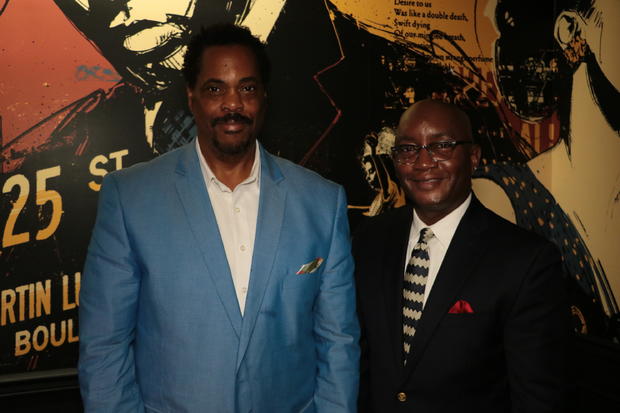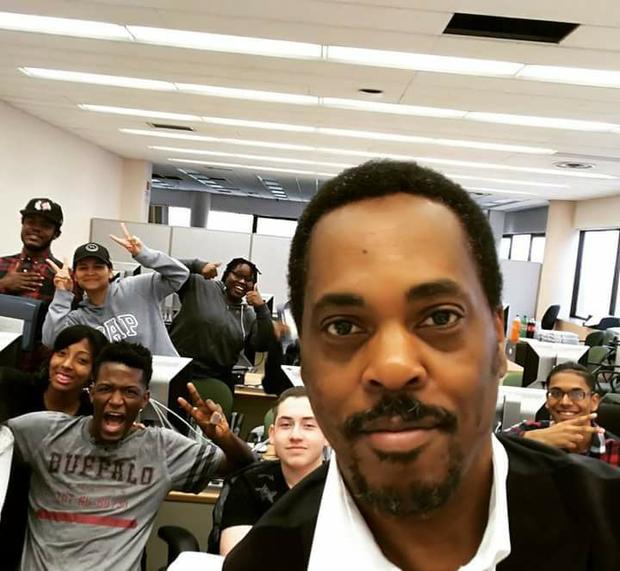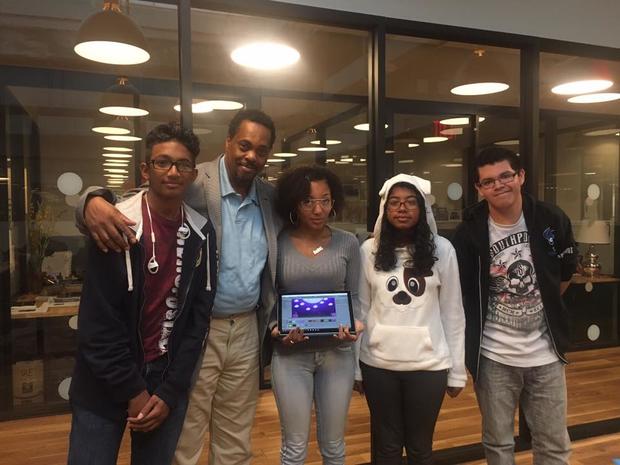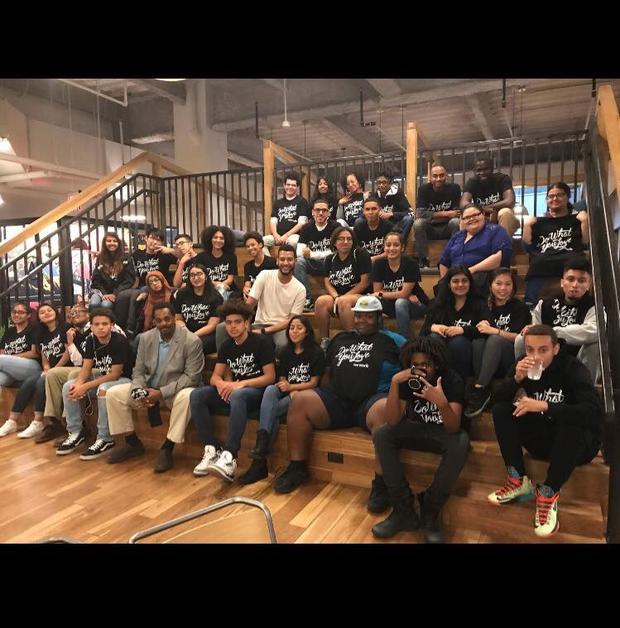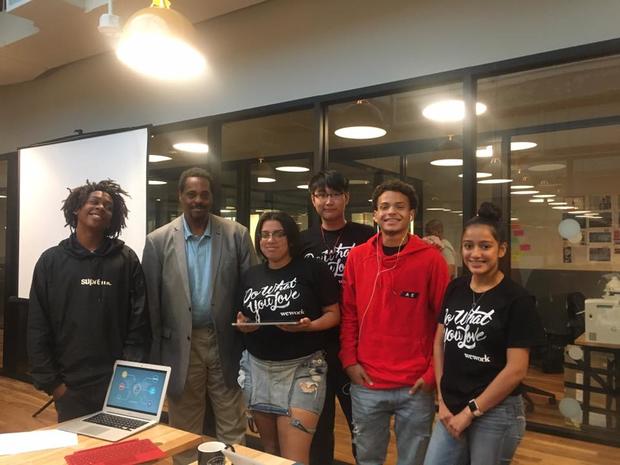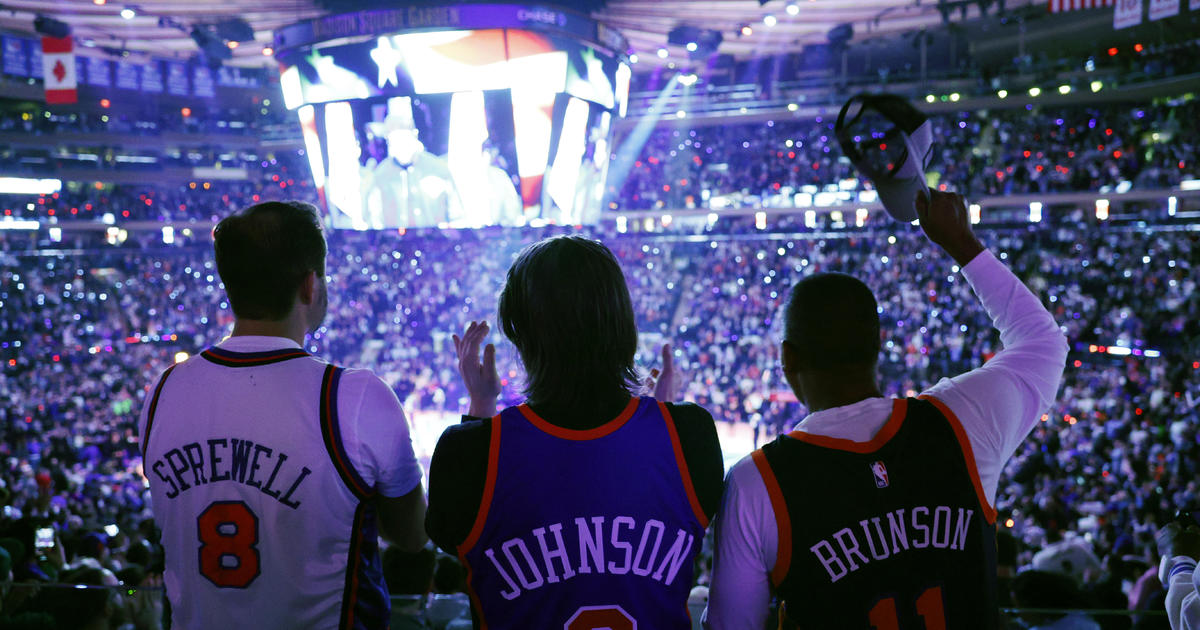Black History Month One-On-One: Silicon Harlem CEO Clayton Banks
Anchored by 1010 WINS' Larry Mullins
Produced for 1010 WINS by Sharon Barnes-Waters
NEW YORK (1010 WINS) -- Black History Month honoree Clayton Banks it the CEO and Co-Founder of Silicon Harlem.
"Silicon Valley has its long legacy of promoting technology. Silicon Harlem has the exact same mission, but we start with the community. The whole objective is to make sure that we are moving our community forward," he tells 1010 WINS' Larry Mullins. "So it's a lot about technology, it's a lot about how we can help with the advancement of technology, but we include education, health awareness, all the sort of systemic issues that often plague marginalized communities. So it's very important for us that we're not only pushing technology but we're pushing the community forward."
He says his work is "intergenerational," because our economy is now "built on innovation and built on digital literacy."
"How do we create a future that's inclusive, that everyone can benefit from? And how do we provide the access and exposure to every single citizen so that at that point they can take advantage of the opportunities?" he says.
More: Larry's Blog: Clayton Banks | Black History Month Photo Gallery
Banks' resume includes positions with former President Bill Clinton, Showtime, Comedy Central, the Sega Channel and developing other apps and platforms. But how about the challenges he's faced along the way?
"When you're thinking about transforming a community and really pulling it into the 21st Century, and thinking about how that might have an impact, and more importantly how you can make it sustainable, it's really important you get all voices to the table. And that becomes a challenge," he says. "It's much easier when it's just me and a couple people that agree with me. But when it's lots of voices that have different opinions and different ways of looking at that future, how do you coalesce that into a united vision that can move this entire community?"
He says his mission is to pour his exposure and experiences back into the community.
"If I could do one more thing [in my life], it's to continually give that access and exposure, because I do believe that it's just a matter of that in order to take advantage of an opportunity," he says.
Banks has also partnered with New York City public schools and created a platform to help students with the college application process.
"Communities like Harlem often trail in technology, and there's no reason for that anymore. Not when people like us have had some access and exposure and have talked to a lot of people – we no longer have to trail in these type of issues, we can now think about how do we lead," he says. "Because urban markets are the markets that are leading in innovation and technology -- we can compete now."
So what's next? He predicts there will be another digital divide, leaving people who either don't know about or can't afford the latest technology in the dark.
"I can at least do something about people knowing about it," he says.
That's part of the goal behind the annual Next Generation Technology Conference, which explores the "relationship between countries as it relates to technology and innovation."
"We're looking at next generation technologies so all of us, but especially the young people behind us, can solve new problems," he says. "We're trying not to pass old problems down."
"What if we were to invent a whole lot more inventors that are coming out of inner cities, that are coming out of urban markets? I always say we could be farming on Mars right now if we just gave more access and exposure to the kids in urban markets. We're leaving – our country is leaving – a whole lot of brain power behind if we don't do that," he adds. "So I think the future looks really good if we're able to transform a lot of these inner cities into tech and innovation hubs, attracting companies… bolstering our entrepreneurialism."
To learn more about Silicon Harlem, visit the website.
